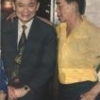20092011
Five years after the 2006 coup, this Wikileaks cable of 28 September 2006, featuring Democrat Party leader Abhisit Vejjajiva seems worthy of attention. In it, U.S. Ambassador Ralph Boyce reports on a meeting he had with Abhisit, at Democrat Party headquarters, to discuss politics and the coup.
Abhisit began by expressing confidence in coup leader General Sonthi Boonyaratglin’s “character,” saying that he “was confident Sonthi had not carried out the September 19 coup in order to put himself in a position of power.”
Abhisit claimed that he was more “worried that Thaksin loyalists would try reasserting themselves in political life…”. He believed that the activities of Thaksin [Shinawatra] loyalists would “make it difficult for the CDR to restore full civil liberties.” He claimed that Thaksin’s wife had cash ready and that Thaksin loyalists had burned rural schools a few days earlier.
Abhisit’s also wanted the junta to “prosecute corrupt Thaksin administration figures, in order to calm the situation sufficiently to allow full restoration of civil liberties.” He asked the U.S. government to supply “the CDR with further information about potential irregularities involved in the RTG’s purchase from General Electric of CTX explosives detection equipment.”
Abhisit was also described as “bullish” on the probability that “Privy Councilor Surayud Chulanont probably represented the best candidate for interim Prime Minister…” although he also like others, including Democrat Party stalwarts. However, he liked the idea of a former military leader as interim prime minister.
The ambassador and Abhisit apparently agreed on the “importance of the CDR transitioning to a civilian-led government as soon as possible, and doing so in a way that would reassure the international community that the CDR members were not intent on remaining in power.” In other words, hoisting Surayud into position, backed by the junta.
One of Abhisit’s main concerns was the fact that the ousted Thai Rak Thai Party might remain a political force and he worried that “TRT would be tempted to use the referendum on the next constitution to try to demonstrate popular opposition to the September 19 coup, thereby regaining some political momentum…”.
Abhisit seemed to feel that his party had been making ground on TRT, claiming there had been “a ‘massive shift’ in public perception of the Democrats, who were increasingly seen as having meaningful policies and ideas, caring for the poor, and being responsive to the people’s needs.” He went on to claim the party could make gains in the north and central region and might even be able to split the vote in the northeast. PPT wonders if he had the exact same thoughts in 2011?
The ambassador commented that:
Abhisit appears to be among the many in Bangkok who see the September 19 coup as a necessary step to rid the country of Thaksin. He did not appear particularly troubled by the current limitations on civil liberties and political party activities, but he clearly anticipated that these would be relaxed in the near future, especially if the CDR were to install an interim Prime Minister capable of controlling the security environment and containing the lingering influence of Thaksin’s loyalists.
More significantly, it is clear that Abhisit welcomed the coup as a convenient means to get himself a step closer to the prime ministership by weakening, perhaps destroying his rivals.
None of this is particularly surprising, for if readers go back to media comments Abhisit made at the time of the coup, this account pretty well matches it. Abhisit has shown over a long period that he is no democrat.
ทำไมขนาดวิกิลีกยังรู้
แต่คนแถวนี้ปฎิเสธไม่ยอมรับความจริงข้อนี้?






































